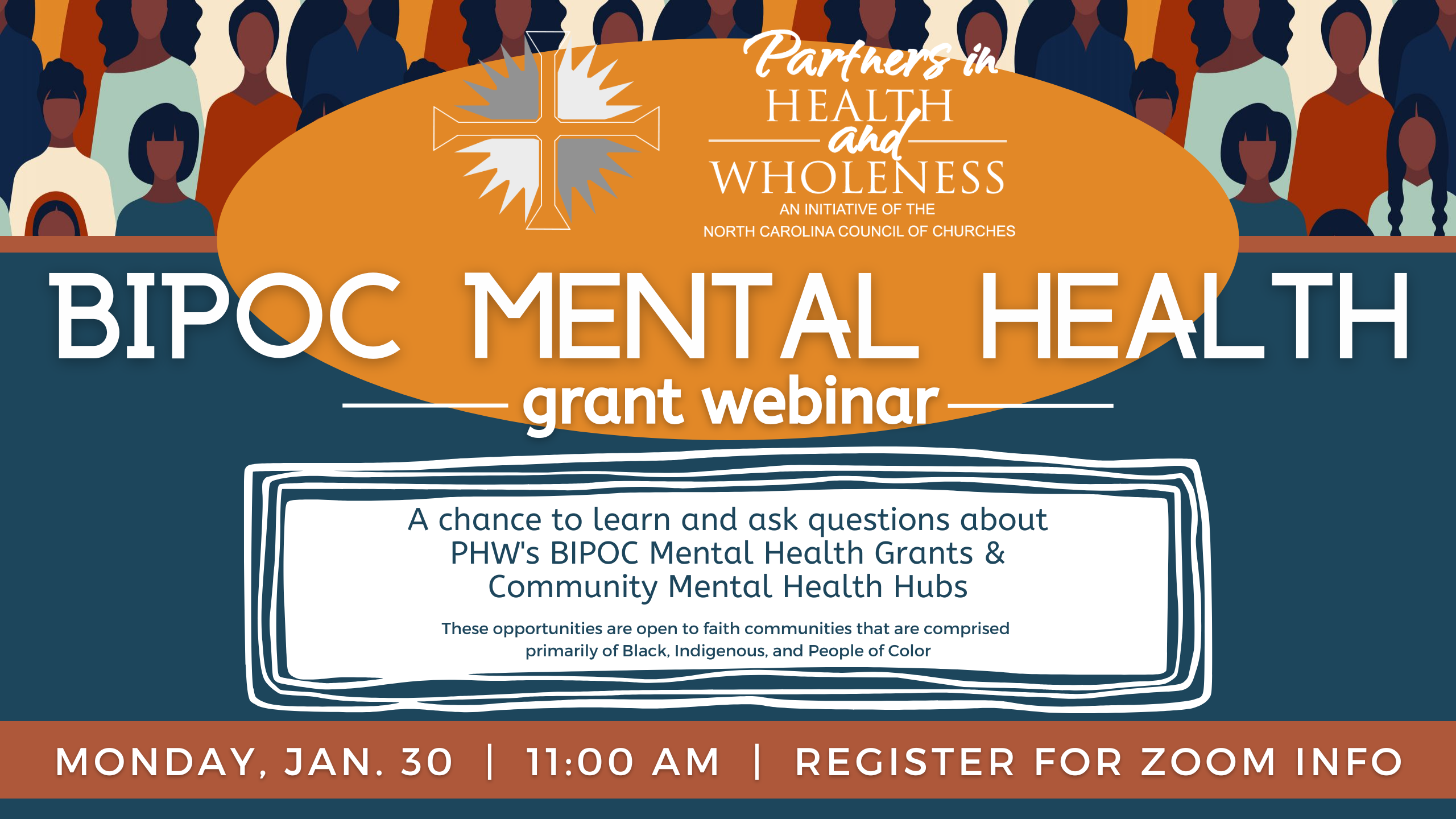

- This event has passed.
BIPOC Mental Health Grant Webinar
January 30, 2023 @ 11:00 am - 12:00 pm

Join PHW for a webinar about our BIPOC Mental Health grant opportunity. PHW will provide participants with an overview of our BIPOC Mental Health Grants and how to apply. These opportunities are available to faith communities which are comprised mainly of Black, Indigenous, and People of Color.
